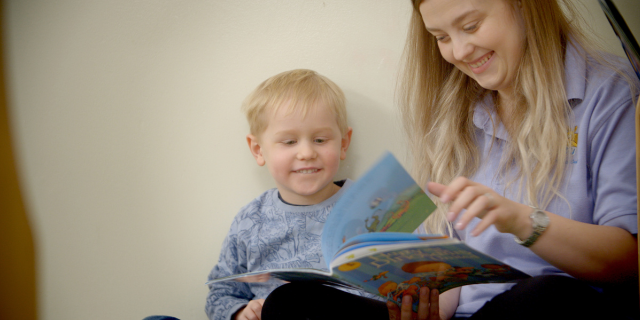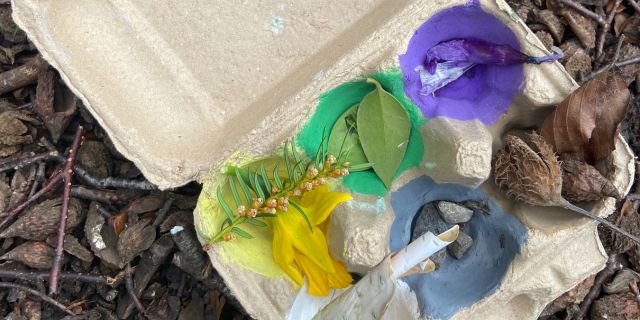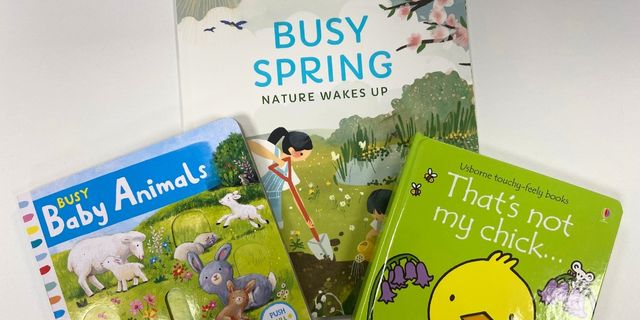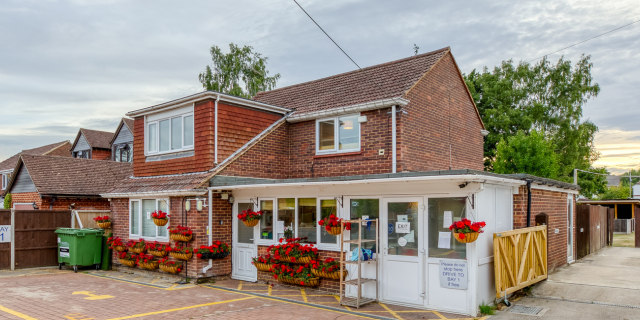Blog
Deciphering the Difference: Pre school vs. Nursery – What’s Best for Your Child?
Blog
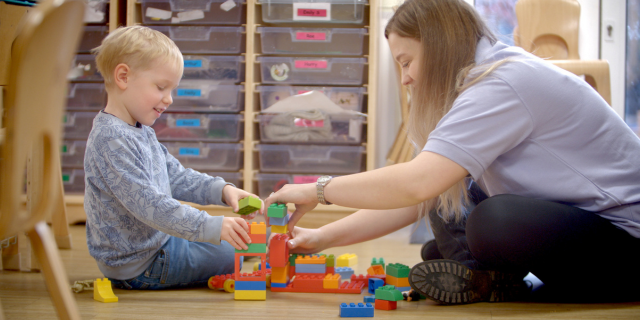
Welcome to Grandir UK’s guide to understanding the subtle yet significant differences between pre school and nursery. If you’re a parent navigating the early education landscape for your child, you might find yourself pondering over which option suits your child best.
In this blog, we’ll delve into the nuances of pre school and nursery, helping you to make an informed decision that aligns with your child’s developmental and education needs.
The difference between preschool and nursery
Understanding Pre school
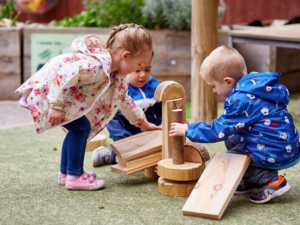
Definition and Purpose
A pre school is a type of early years childcare setting where children experience a more structured learning environment. This is of course in addition to plenty of exciting opportunities for play with other children throughout each pre school session! A key aim of pre school is to help prepare children for starting school.
Curriculum and Focus Areas
All pre schools in England follow the Early Years Foundation Stage (EYFS) national curriculum which was created to help promote the learning and development of children aged 0-5. It’s divided up into seven key areas all of which help children foster positive life skills and early academic knowledge they need for both school and beyond! This includes communication, language, emotional development, art, literacy and maths.
Age Range and Enrolment
Pre schools tend to accept children between the ages of two and five, although this may depend on the individual setting. Every situation and child is different, so there really is no “right time” to enrol your little one into pre school!
2. Exploring Nursery
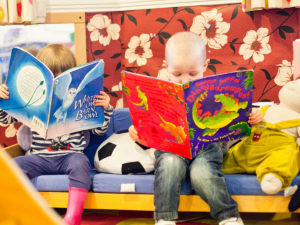
Definition and Objectives
A day nursery is another type of early years setting whose main focus is on providing high-quality childcare for those too young to attend school. Although the term “nursery school” is sometimes used interchangeably, these differ in the fact they have a trained teacher or headteacher in charge. In addition to fulfilling their emotional and physical needs, the nursery team support and nurture children in the development of their confidence, social skills, language, and other important skills. Some schools have nurseries attached, which is not always required but is helpful if you have older children at school.
Activities and Environment
A key difference between preschool and nursery (whether a public nursery or a private nursery) is their approach to education. Whilst education is still very much a part of nursery life, they have adopted a much more relaxed, less structured approach. Play is an incredibly important part of a young child’s life and throughout a typical day at nursery, they will enjoy a great variety of activities which present fun and engaging opportunities for learning. This may include arts and crafts, baking, gardening, yoga and forest school sessions.
Age Range and Admission
Children are typically able to attend nursery from the age of three months up until they are five years old. Once you’ve secured a space for your child, they will be offered a number of settling in sessions prior to their official start date. The purpose of these sessions is to gradually ease your little one into nursery life to ensure they feel comfortable and secure in their new surroundings.
3. Bridging the Gap: Differences and Similarities
Structure and hours
Both nurseries and pre schools tend to have similar opening hours. Parents will generally be able to choose between taking full days or morning or afternoon sessions. Some nurseries and pre schools will be open during school holidays but others may be term time only. An important difference between nursery and pre school is the latter’s more structured environment designed to help children get ready to start school.
Curriculum Emphasis
Whilst both pre school and nurseries follow the same curriculum, the EYFS framework, there is a difference in their approach to early childhood education. Pre school teachers will focus on developing and nurturing the skills and knowledge children will need when attending a local school.
Teacher Qualifications and Roles
Pre school teachers hold an Early Years Teacher Status (EYTS) and will have completed a course in Early Years Teacher Training. A nursery team member is required to hold a minimum of a Level 2 in Childcare, but many will have also progressed to completing Level 3. As nurseries tend to care for children from a much younger age, their roles will also contain more childcare elements.
4. Choosing the Right Fit
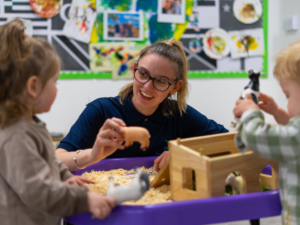
Assessing Your Child’s Needs
A great place to start when considering whether to opt for a nursery or a pre school is thinking about your little one’s needs. Many parents will find nursery a more suitable environment for babies and toddlers up to the age of three who require more focused care. Older children may benefit more from the routine and structure that pre school provides which is great in helping to prepare them for attending primary school.
Considering Practical Factors
Something else to consider when trying to choose pre school and nursery settings is the logistical aspect. Think about your financial situation and what you can realistically afford. Don’t forget to check the government’s Childcare Choices website to see if you’re entitled to any help with costs! Travel and flexibility requirements are also important points to consider. Working parents, do the hours of your prospective settings fit in around your commitments? If you’ve got older children, it could be worth looking at nurseries or preschools attached to local primary schools. The important thing to remember about a school nursery is it doesn’t automatically mean your child will be able to attend that primary school. That’s a decision for the local authority to make.
Visiting and Researching
Taking the time to research prospective nursery or pre school settings will help you gain an insight into daily life there and if this would cater to your little one’s interests. If your child really enjoys outdoor play for example, you could research nearby settings which offer forest school sessions. Checking out review sites like DayNurseries is also great way to get an idea of the experiences other parents have had with the setting.
Of course, the best way to see if a nursery or pre school is right for you and your little one is to go and visit for yourself! Booking a tour of prospective settings will give you the opportunity to explore their facilities first-hand and meet their dedicated team. They’ll be able to answer all your questions, give you a great insight into the typical day and explain the next steps.
5. Conclusion
When it comes to pre school vs. nursery, there are a number of important points for prospective parents to consider it is not only about your child’s education but the quality care they will receive. Remember that it’s all about you and your child! Simply taking a bit of time to asses both of your needs and conducting some research should highlight early years settings that foster your little one’s growth, curiosity and happiness. Nursery schools and preschools should prepare children for starting school.
If you are interested in booking a tour of one of Grandir UK’s many nurseries across the UK, please search for your nearest setting or give our friendly customer services team a call on 0800 028 4500.
Share this article
Related blog/news
Swipe to see our latest articles.

